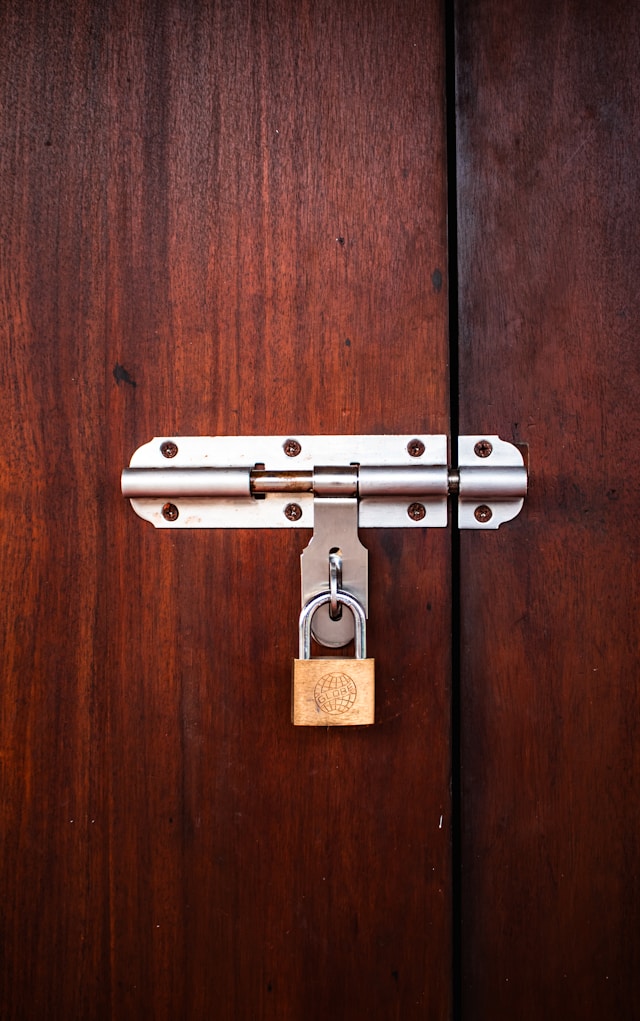How to Secure Your Apartment Without Violating Your Lease
Securing your apartment is important, but plenty of renters worry about breaking their lease agreements.
Lease terms can be surprisingly strict about what you're allowed to change or install. Before you start making security upgrades, it's worth figuring out exactly what's allowed - and what's going to get you in hot water.
Know Your Lease: What Security Changes Are Allowed?
Before you start picking out new gadgets, go through your lease agreement. A lot of leases spell out exactly what you can or can't do when it comes to making changes.
Common permissions and restrictions you might find include:
- No altering door locks without landlord approval.
- No drilling or mounting devices that leave marks.
Every lease is its own beast. Even something as simple as swapping in a deadbolt might need your landlord's written approval.
If your building already has security features - like controlled entry - your lease might not allow you to make changes that mess with those systems.
If anything's unclear, just ask your landlord (and get it in writing). Save the emails or texts, just in case. Stick to the process for requesting changes, whatever your lease says.

Smart, Lease-Friendly Security Upgrades
You can definitely boost your apartment's security with wireless smart gadgets that don't require drilling or permanent installation. A lot of these are battery-powered, peel-and-stick, and come right off when it's time to move.
Smart locks are a good example - some models just replace the inside part of the lock, or even slip over your existing deadbolt. No need to mess with the door or the exterior hardware.
Here are a few popular upgrades to consider:
- Door/Window Sensors
- Indoor Security Cameras
- Smart Plugs
- Video Doorbells
It's still smart to check with your landlord, even for little stuff. Most are fine with upgrades that don't mess with the structure or go against your lease.
Why Lock Quality Still Matters in Rentals
If you're renting, you're stuck with the locks that came with the place—at least at first. The trouble is, a lot of those standard locks are pretty basic and might not stand up to someone determined to get in.
Key reasons lock quality is important:
- Deterrence: Better locks can make would-be intruders think twice.
- Safety: Good locks lower the odds someone can get in with a bump key or random tools.
- Peace of Mind: It just feels better knowing your lock isn't a pushover.
| Lock Type | Common in Rentals | Security Level |
|---|---|---|
| Basic deadbolt | Yes | Low–Medium |
| Keypad lock | Sometimes | Medium |
| Smart lock | Rare | Medium–High |
If you want to upgrade the lock, you'll probably need your landlord's permission. Always ask before making changes—better safe than sorry.
If changing the lock isn't an option, look into approved extras like door jammers or portable locks. Solid locks are still the foundation of apartment security, wherever you live.
When to Involve a Locksmith (and How to Do It by the Book)
Sometimes you just need to swap out or repair your apartment locks, maybe for peace of mind or because something's gone wrong. But when exactly can you call a locksmith, and how do you avoid accidentally breaking your lease in the process?
If your lock's busted or you've lost your keys (it happens!), your landlord should be your first call. Most leases want everything in writing before you mess with locks or bring in a locksmith. An email or a maintenance ticket works—just make sure you've got a record.
Reasons to involve a locksmith:
- Lost keys
- Broken or malfunctioning lock
- Moving in and safety concerns
- Lockouts (if landlord or property manager is unavailable)
Steps to follow:
- Review your lease for anything about locks.
- Contact your landlord and get the green light in writing.
- Ask if there's a preferred locksmith. Sometimes they've got a go-to, which can make things smoother.
- Hang onto all your emails and invoices—just in case.
- Hand over a new key to the landlord if your lease says so.
Do
- Notify your landlord
- Get approval in writing
- Use reputable locksmiths
Don't
- Change locks without permission
- Ignore lease requirements
- Choose unlicensed providers
It's honestly just easier to follow the process—keeps your place secure and avoids headaches with your lease. If you're ever unsure, double-check your lease and loop in your property manager. Better safe than sorry, right?